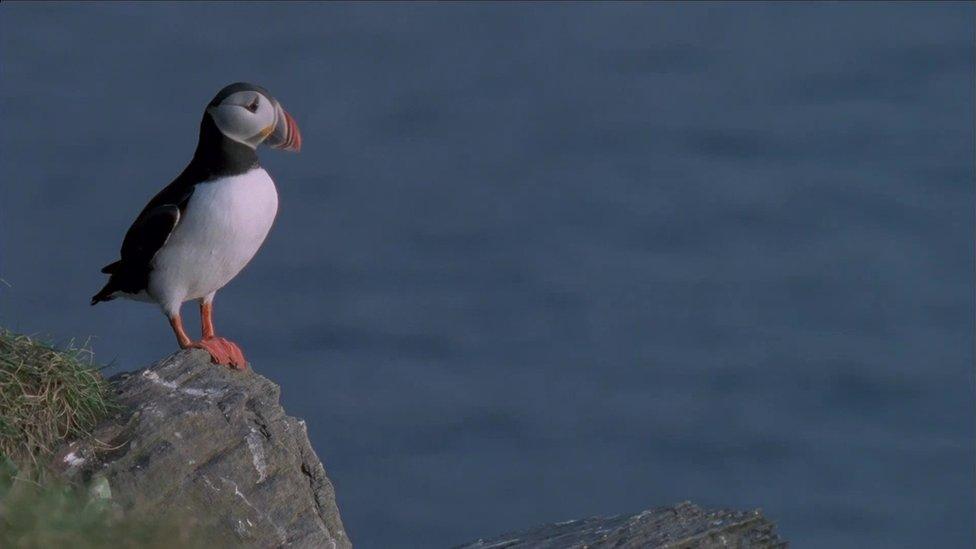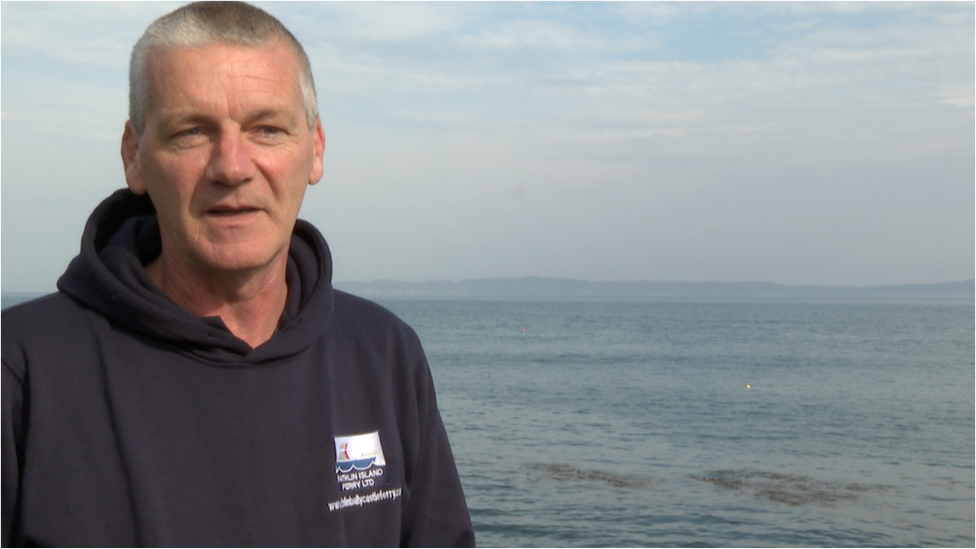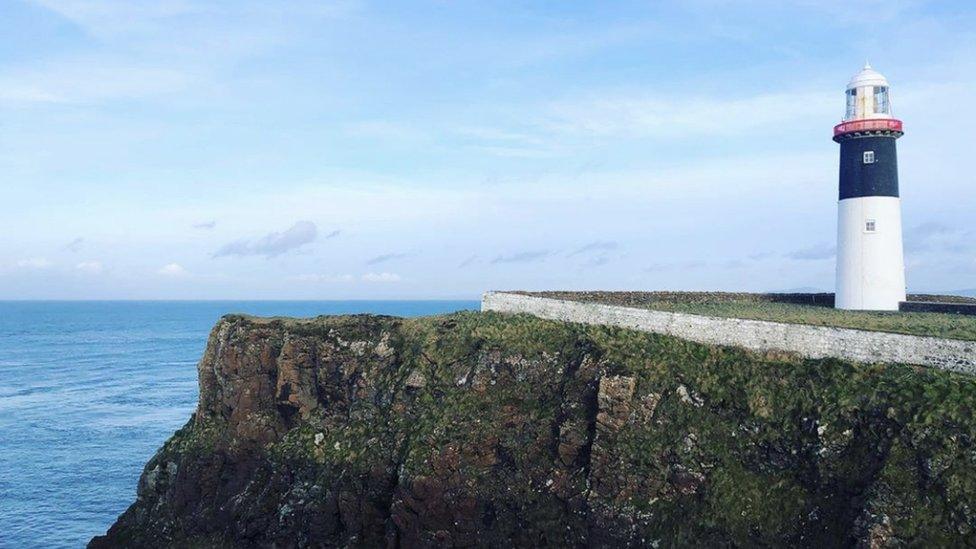Rathlin Island: Project to protect seabirds from rats and ferrets
- Published

Puffin numbers on Rathlin have declined by more than half in recent years
Seabirds that are in decline on Rathlin Island are to be protected through a £4.5m scheme.
The five-year project aims to eradicate rats and ferrets from the island off the north Antrim coast.
The Royal Society for the Protection of Birds (RSPB) has said 25 species of birds are at risk partly due to the invasive predators.
Puffin numbers on Rathlin have declined by more than half in recent years, according to the charity's research.
Claire Barnett from the RSPB said "Bringing this global-scale conservation project to Northern Ireland is vital to safeguard the amazing wildlife on Rathlin.
"We will protect and promote Rathlin's internationally important wildlife and landscape so future generations can enjoy seeing guillemots, razorbills, kittiwakes and the iconic puffins and possibly even the return of locally extinct species such as Manx shearwaters and storm petrels, which were once common on the island."
It is thought that ferrets were brought to Rathlin in the mid 1980s in an attempt to control the rabbit population.
However, they have since contributed to the decline of birds breeding on the island.
'Very special island'
The seabird restoration project known as Rathlin Acting for Tomorrow is set to be the largest of its kind on the island of Ireland.
Michael Cecil, who chairs the Rathlin Development and Community Association, said the islanders were "proud to protect our natural heritage".
"We can see how it sustains our community and makes Rathlin a very special island," he said.

Michael Cecil, who chairs the Rathlin Development and Community Association, said the islanders were "proud to protect our natural heritage".
"This project will help protect our livestock and crops, create over 30 jobs, increase on-island spend and further promote Rathlin as a leader in eco-tourism whilst boosting our recovery from Covid-19.
"We hope this project will make Rathlin an even better place to live, work and visit."
Graham Thompson, the chief executive of Causeway Coast and Glens Heritage Trust, said the project was "hugely important".
"The formal starting point has been a long time coming - there have been almost 10 years of hard work, research and development to get us where we are today."
The project is being developed with operations due to begin next year.
- Published11 July 2021
